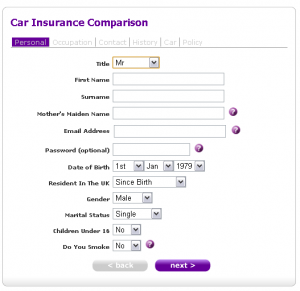Retirement savings have dwindled significantly over the past 18 months. The median rate of return on 401k balances was negative 28.3% in 2008 according to a study by human-resources consulting firm Hewitt Associates. The average 401k balance dropped from $79,600 at year-end 2007 to $57,200 at the close of 2008.
In the 12 months following the stock market’s peak in October 2007, more that $1 trillion worth of stock value held in 401ks and other “defined-contribution†plans was wiped out, according to the Boston College research center.
Alan Weir, who turns 60 this month, showed 60 Minutes his latest 401(k) statement, which he hadn’t had the courage to open up. “I’m afraid,” he told correspondent Steve Kroft. There’s good reason for his trepidation: nearly half of his life savings have vanished in a matter of months. “It went down again,” Weir told Kroft after opening the statement. Overall, he said he was down about $140,000.
Another woman in a similar situation told Kroft her 401(k) was worth less now than it was in 2005. “And another one went down almost $40,000. One was 80 – 88,000. And then, and then it went down to 50(k),” she told Kroft, crying. The saddest part of this story is that it is being repeated all over the country.
In eastern Pennsylvania, 59-year-old Iris Hontz lost her accounting job and half of her 401(k) investments.
“Unlike Wall Street executives, American families don’t have a golden parachute to fall back on,†said U.S. Rep. George Miller (D-CA).
www.401kinvesthelp.com is a site designed to assist the Individual in their noble attempt to save for retirement. How does it guide investors? The number one problem investors have while saving for retirement is the potential of suffering devastating losses of 30% or more in stock mutual funds. The ideology of just “buy and hold,†“invest for the long term†only work a small percentage of the time. In addition to the latter problem, 80%-90% of the mutual funds offered within these retirement vehicles are more risky than the benchmark or index they follow. It’s about time someone stepped in to assist Americans with their retirement accounts rather than leaving them helpless and alone. The indicators used within the site are designed to give individuals a sneak peek into the economy and the financial markets. Is it safe to be invested fully? Should I take some off the table and be only partially invested? These are questions everyone has and generally know the answers to, but need someone to help reinforce that decision. The indicators are updated every 1st business day of each week and an email is sent to each subscriber alerting them of any changes, as well as a brief commentary on the financial markets. Investing smart bodes well for those who understand, “It’s just best to sit on the sidelines and watch the fireworks at times.â€
If you would like more information about this topic, or to schedule an interview with Leonard M. Rhoades, please call Andrea Rhoades at 616-581-5696 or email support@401kinvesthelp.com.
Via EPR Network
More Financial press releases















